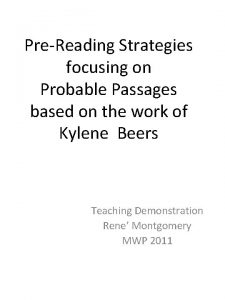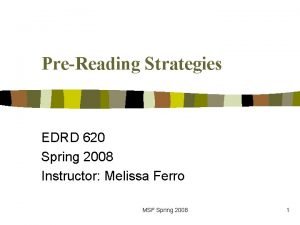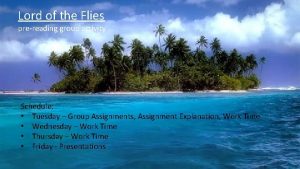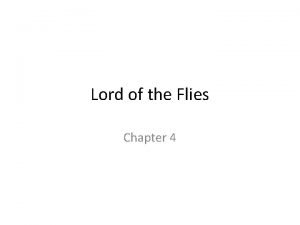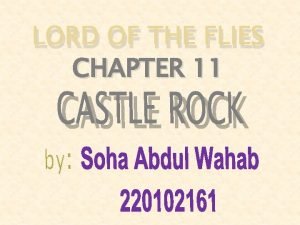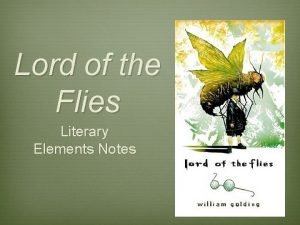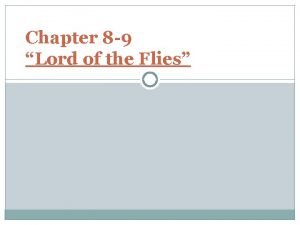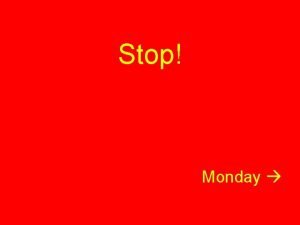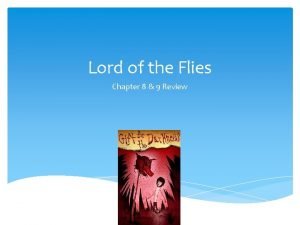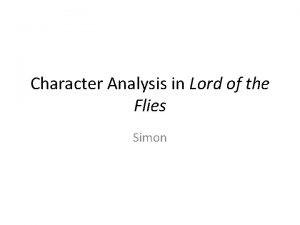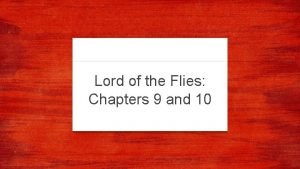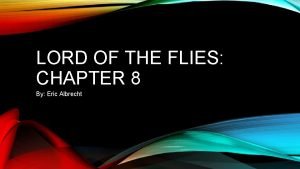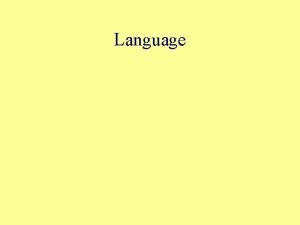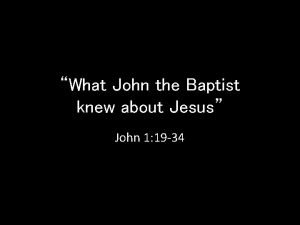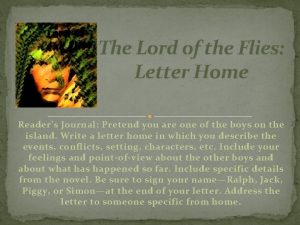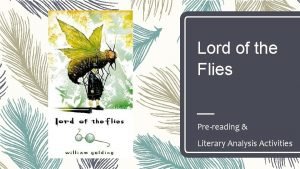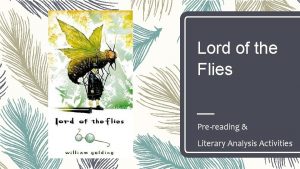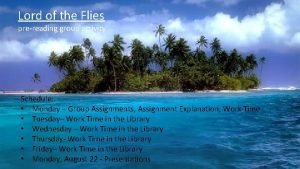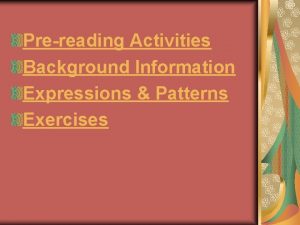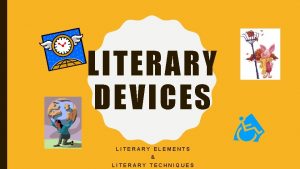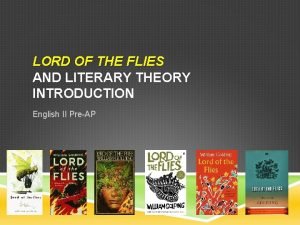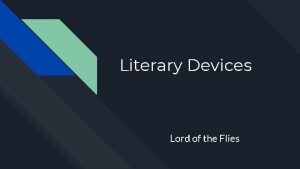Lord of the Flies Prereading Literary Analysis Activities














- Slides: 14

Lord of the Flies Pre-reading & Literary Analysis Activities

Leadership & Decision Making

Semantic Map Group Activity – What makes a good leader? – On your white board MAP it out – 5 Qualities which are needed in a good leader – 5 Qualities which make for a bad leader

Survival STEP 1: Individually – Complete Survival Handout individually. Do not discuss your choices. STEP 2: As a Group – Discuss and compare choices. – Using a new Survival worksheet, come to a consensus and agree on final choices as a group.

Follow-up – How easy was it to come to decisions in your group? – Did someone emerge as a leader? – Do you think some people are natural leaders and some are natural followers? – In a survival situation, do you think that leaders should be intellectuals or those who are physically strong? – Why have leaders at all? Can’t everyone just look after himself or herself?

Lecture

– What is a society? – What makes a society run smoothly? What do you need? – What expectations do you have of a leader? – How do you destroy a society? Respond to these questions on your handout

Psychology The study of mental functions and behaviors 3 Parts of the Psychic Apparatus or the Psyche (created by Sigmund Freud)

q Id § Basic drives and instinctual tendencies § wants, desires, impulses § Ex. Drives like fight or flight

q Ego § Organizes thoughts § Seeks to mediate between the Id and reality to resist impulses § Conscious of social rules § But more loyal to the Id § (ex. Resist the impulse to grab another’s belongings)

q Superego § Moral voice or conscience. § Internalizes learned cultural rules nurtured by environment. § Seat of your sense of guilt comes from § Location of the conscience (Right and Wrong) § Location of defense mechanisms like denial


Sociology The science of society, social institutions, and relationships. The systematic development, structure, interaction, and collective behavior of organized groups of human beings. q. Social Norms- accepted practices q. Mores- formal rules or morals that emphasize right and wrong q. Folkways- informal rules or norms; cultural practices like proper dress and greetings q. Taboo- moral violation (forbidden, unmentionable action) that can have consequences q. Culture- a set of attitudes, values, goals, beliefs, and practices shared by a group of people q. Rules- prescribed guide for conduct or action q. Law- practice or rule of conduct/action that is formally recognized as binding and/or enforced by controlling forces.

Maslow’s Hierarchy of Needs
 Prereading strategies
Prereading strategies Prereading strategies
Prereading strategies Lord of the flies pre reading activity
Lord of the flies pre reading activity Lord of the flies chapter 4 notes
Lord of the flies chapter 4 notes Lord of the flies ch 11 summary
Lord of the flies ch 11 summary Literary devices in lord of the flies
Literary devices in lord of the flies Lord of the flies chapter 8 and 9 summary
Lord of the flies chapter 8 and 9 summary Lord of the flies in hebrew
Lord of the flies in hebrew Lord of the flies chaoter 8 summary
Lord of the flies chaoter 8 summary Lord of the flies-simon
Lord of the flies-simon Lord of the flies chapter 9-10
Lord of the flies chapter 9-10 Summary of lord of the flies chapter 8
Summary of lord of the flies chapter 8 Ambiguities definition
Ambiguities definition Lord of the flies book cover
Lord of the flies book cover Lord of the flies letter home
Lord of the flies letter home
